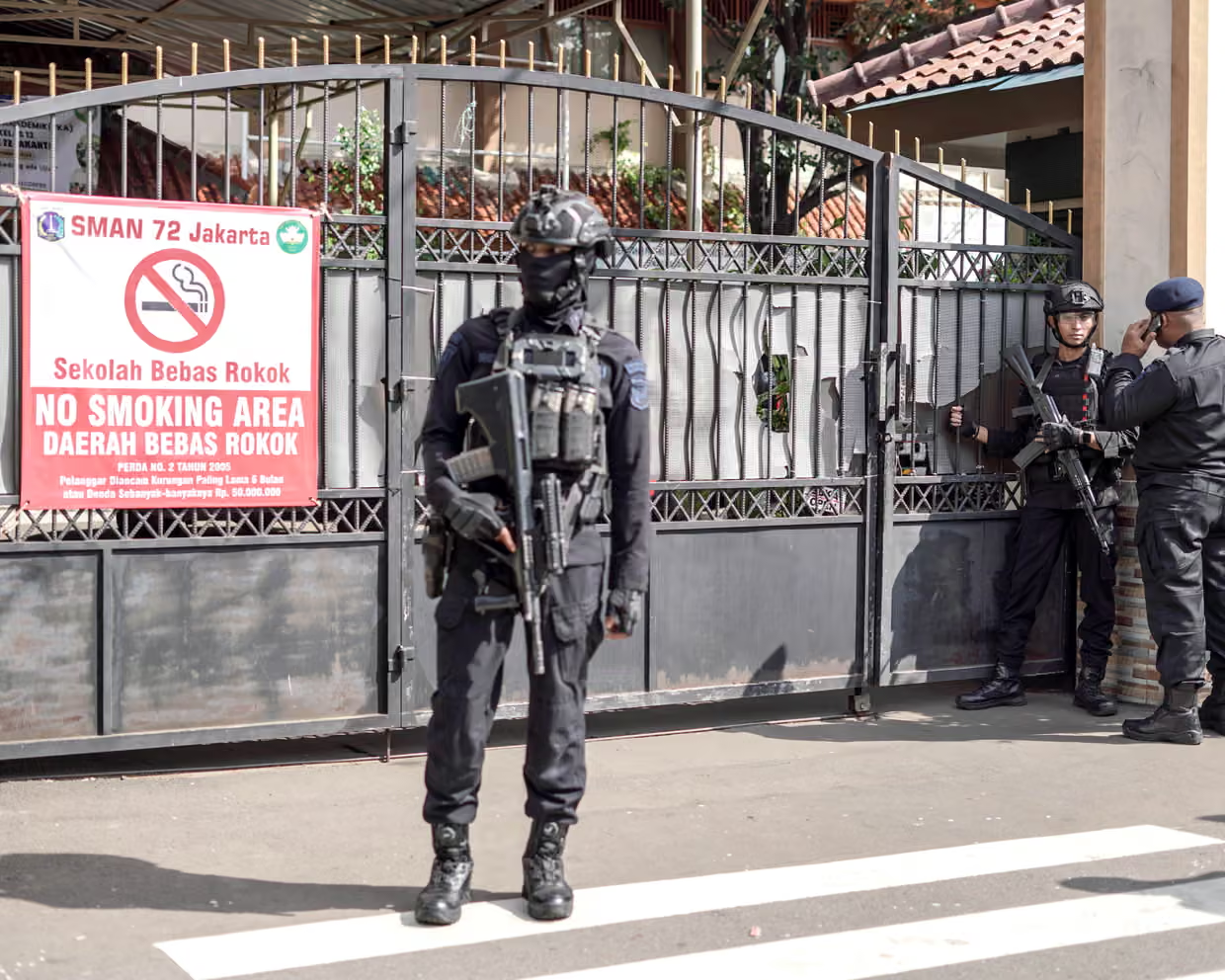Unwelcome Guests: The Turkish Military Bases in Northern Iraq
Unwelcome Guests: The Turkish Military Bases in Northern Iraq
Following the Turkish military’s raid on northern Iraq in late February, the little-known and poorly understood presence of Turkish military bases in Kurdish Iraq has become a major issue in relations between the two countries. On February 26, the parliament of the Kurdistan region of Iraq approved a motion calling on the Kurdistan Regional Government (KRG) to demand the closure of all Turkish military bases in northern Iraq (Today’s Zaman, February 27). The decision came during the incursion into northern Iraq by Turkish troops against elements of the Kurdistan Workers’ Party (PKK) and demonstrated not only the KRG’s often ambivalent attitude toward the presence of the PKK on the territory under its nominal control, but also the suspicions of many Iraqi Kurds that Turkey is using its war against the PKK as a pretext to stifle their own dreams of independence.
Turkey’s long-term military presence in northern Iraq has generated surprisingly little international attention. In the months leading up to the Turkish incursion in February, there was considerable debate about the impact that Turkish ground troops crossing the border might have on what has long been the most stable region of Iraq and almost none on the several thousand Turkish ground troops who have been deployed in northern Iraq for over a decade.
Why Are Turkish Bases in Northern Iraq?
The PKK has been operating out of northern Iraq since it launched its insurgency in 1984. Initially, northern Iraq was primarily a forward staging area. Until 1998, the PKK’s high command and main training camps were located in Syria and the Syrian-controlled Bekaa Valley in Lebanon. However, the mountains that straddle the Iraqi-Kurdish border were much more suitable as a platform for infiltrations into Turkey than the relatively flat and heavily mined terrain along Turkey’s border with Syria. The PKK also benefited from the defeat of Saddam Hussein in the 1991 Gulf War and the creation by the U.S.-led Alliance of a no-fly zone above the 36th parallel. Although the Allies’ intention was to create a safe haven for the Iraqi Kurds, the resultant power vacuum in northern Iraq also indirectly provided the PKK with immunity from the regime in Baghdad. At the time, the Iraqi Kurds themselves were divided between the Kurdistan Democratic Party (KDP), led by current KRG President Massoud Barzani, and the Patriotic Union of Kurdistan (PUK), headed by current Iraqi President Jalal Talabani. Neither leader had the ability to suppress the PKK. Indeed, each appeared more interested in using what military capabilities they did possess to pursue their long-running and frequently violent rivalry.
After the 1991 Gulf War, Turkey increasingly took matters into its own hands. It already had an agreement with the regime in Baghdad for cross-border hot pursuits of PKK militants. Starting in 1992, the Turkish military began to launch a series of large-scale incursions—sometimes with tens of thousands of troops—into northern Iraq to strike at PKK camps and bases there. It even established an informal alliance with Barzani, under which the KDP peshmerga militia served as guides for Turkish units in operations against the PKK, at times even fighting alongside Turkish troops. In return, Turkey gave the KDP the arms and supplies it captured in raids on the PKK’s camps and bases in northern Iraq.
Although most of the Turkish troops were withdrawn once the incursions had achieved their operational objectives, in practice Turkey retained a small, permanent, military presence in northern Iraq, consisting of intelligence officers and personnel responsible for liaison with the KDP. The situation was formalized when the United States finally succeeded in brokering an agreement between the KDP and the PUK. From 1997 onward, Turkish troops were formally deployed to northern Iraq as part of a ceasefire monitoring mechanism, whose mandate came up for renewal on an annual basis. Turkish regular forces were deployed in the northwest of the Kurdistan Region, in territory under the KDP’s control, while Turkish Special Forces established offices further south in the cities of Arbil and Sulaymaniyah (AFP, October 16, 2007).
Monitoring the PKK
Publicly, Turkish officials insist that the troops were invited into northern Iraq by the Kurds to contribute to regional peace and stability. Privately, they admit that their main motivation was to establish a formal presence in northern Iraq to monitor PKK activity in the region. Today at least, the Iraqi Kurds tend to regard the agreement as something that was imposed upon them and which, after more than a decade without serious clashes between the KDP and PUK, is simply no longer needed.
Initially, the Turkish deployment consisted of a brigade of around 5,000 men, mostly Special Forces and commandos backed by armor and artillery. In August 1999, following the capture and imprisonment of its founder Abdullah Ocalan, the PKK announced that it was abandoning the armed struggle. In the following years, the number of Turkish troops deployed in northern Iraq was gradually reduced and does not appear to have been substantially increased since the PKK returned to violence in June 2004.
No official figures are available but there are currently estimated to be around 2,000 Turkish troops still deployed in northern Iraq under the 1997 agreement. They are concentrated in a strip of land approximately 10 miles deep along the Turkish border in Dohuk province in the northwest of Iraqi Kurdistan. Most are located in a Turkish base at the former Iraqi military airfield at Bamerni, approximately 15 miles (24 kilometers) south of the Turkish-Iraqi border. There are smaller bases both to the west of Bamerni, close to the town of Batufa, and to the east in the al-Amadiyah district, close to the town of Qanimasi and on a hill which has been named Dilmen Tepe by the Turkish army. In addition to commandos, Special Forces and support units, the deployment in northern Iraq also includes a tank battalion, most of which is based at Bamerni. The troops are usually supplied by land from Turkey. Although it is not used for fixed wing aircraft, helicopters—including both transport helicopters and Cobra attack helicopters—fly in and out of Bamerni. In 2006, in an indication that it had no immediate intention of leaving Iraq, the Turkish military upgraded its facilities at Bamerni, including increasing its helicopter-handling capabilities.
The importance of the deployment in northern Iraq to Turkey’s war against the PKK is disputed. There is little doubt that the Turkish bases are useful as platforms for intelligence gathering and covert operations against the PKK in the surrounding countryside. However, under the terms of the agreement, the Turkish troops are deployed in a monitoring capacity only and are not supposed to leave their bases unless they have the agreement of the Iraqi Kurdish authorities. As a result, the Turkish troops deployed under the agreement have not been used to engage the PKK militarily in northern Iraq.
Effectiveness against PKK Infiltration
The number of PKK militants in the Kurdistan Region varies, falling in the summer and rising in the winter when the snow blocks the mountain passes on its infiltration routes and most of the organization’s fighting units withdraw from Turkey to wait out the winter in northern Iraq. There are currently estimated to be around 3,500 PKK militants in northern Iraq with perhaps another 1,000 in winter hideouts inside Turkey. However, the PKK’s main infiltration routes and most of its militants in Iraq are located to the east of the Turkish bases and separated from them by high mountains. Some routes are close to the border, such as in the Zap region, which was the target of the February incursion (see Terrorism Monitor, March 7), while others are closer to the organization’s headquarters and main training camps deep in the Qandil mountains, close to Iraq’s border with Iran and around 60 miles (100 kilometers) south of its border with Turkey.
The Turkish military presence in northern Iraq is resented by both the local populace and the Iraqi Kurdish authorities. Although it has repeatedly presented its war against the PKK as a struggle against terrorism, Turkey has traditionally been at least as concerned by the PKK’s ultimate goal, namely Kurdish separatism, as by the methods used to try to achieve it. It has long feared that the development of a Kurdish political entity could eventually culminate in full independence, which in turn could further fuel separatist sentiments amongst Turkey’s own Kurdish minority. Ankara has always insisted that it will never allow the Iraqi Kurds to establish an independent state. Many Iraqi Kurds suspect—probably with a degree of justification—that the main reason for Turkey retaining its bases in northern Iraq is to serve as a physical reminder of its military might and political determination.
Opposition of the Kurdistan Regional Government
The KRG has always insisted—probably with more bravado than conviction—that it will resist militarily any Turkish attempt to interfere in Iraqi Kurdistan’s internal affairs. Since 2004 peshmerga bases have been built next to the Turkish ones. On February 21, the first day of Turkey’s eight-day incursion, approximately 350 Turkish troops in armored vehicles and around 12 tanks tried to leave the Turkish base at Bamerni. The KRG had received no prior notification of the deployment. Peshmerga surrounded the base and refused to allow the Turkish forces to leave. After a confrontation lasting 90 minutes, the Turkish forces backed down and withdrew inside the base (Radikal, March 4). In retrospect, the attempted deployment appears to have been a diversionary tactic, designed to distract the PKK from the coming attack on the Zap region. Nevertheless, the 90-minute standoff at Bamerni underlined the potential for a much more serious confrontation.
In practice, there appears little the KRG can do to force Turkey to close down its bases in northern Iraq. The Turkish General Staff bluntly dismissed the resolution calling for the bases’ closure and vowed that it would remain in northern Iraq until the PKK had been eradicated (Vatan; NTV, March 5). In reality, the KRG appears to lack both the military muscle and the political authority to force the issue, not least because it is the central government in Baghdad, rather than the KRG, which is responsible for handling Iraq’s relations with other states. The central government is unlikely to want to risk a confrontation with Turkey by insisting that it close its bases.
On the other hand, neither the KRG nor the central government in Baghdad is likely to welcome a plan touted in the Turkish media following the completion of the Turkish military incursion into northern Iraq in February. According to a report in Today’s Zaman, the Turkish General Staff is contemplating the establishment of an additional 11 military bases on the Iraqi side of the Turkish-Iraqi border in order to block the PKK’s main infiltration routes into Turkey (Today’s Zaman, February 29). However, the sourcing for the report was unclear and, in an interview in the same article, Turkish government spokesman Cemil Cicek explicitly dismissed the suggestion that Turkey was planning to create a security zone in northern Iraq—something which would likely be opposed not only by the KRG and the Iraqi government but also by the United States.
Conclusion
Ultimately, although cross-border raids can harm the organization, Turkish hopes of eradicating the PKK presence in northern Iraq depend on persuading the KRG to cooperate. The KRG’s peshmerga may not be strong enough to destroy the PKK in its almost inaccessible bases in the mountains, but they can exert considerable pressure by staunching the flow of militants and supplies from the lowlands to PKK camps. In its relations with the KRG to date, Turkey has tended to opt for intimidation rather than engagement; not least because it fears that engaging on an official level with the KRG would be regarded as recognition of its political authority in the Kurdistan Region, which could in turn encourage the KRG to push for full independence. However, as demonstrated both by the confrontation with the peshmerga on February 21 and the February 26 call for their closure, the military bases in northern Iraq continue to fuel considerable resentment amongst Iraqi Kurds. Most believe that the bases are designed to serve as a deterrent to Iraqi Kurdish political aspirations rather than to monitor the KDP-PUK ceasefire or combat the PKK. Under such circumstances, KRG cooperation against the PKK is likely to be grudging at best, and may simply not happen at all.


